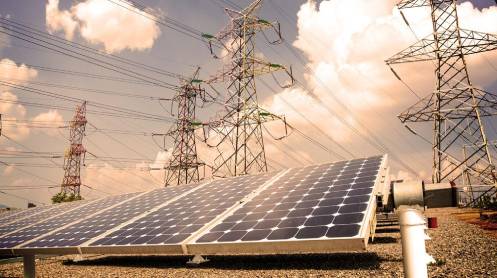KARACHI: Pakistan needs to adopt sustained and consistent energy policies to provide cheap and reliable electricity to its people, a panel of experts and stakeholders said on Tuesday.
The panel discussion, organized by the Policy Research Institute for Equitable Development (PRIED), focused on the challenges and opportunities of using solar power in high-loss feeder areas, where load shedding and electricity theft are rampant.
Abu Bakar Ahmed, secretary of Sindh government’s energy department, said that the country had failed to do long-term planning in the energy sector and had relied on costly sources such as furnace oil and gas.
“Since day one, we have been lurching from one ad hoc measure to the next and never thought of doing long-term planning in the energy sector,” Ahmed said. “The biggest problem in using renewable energy sources such as solar panels is their high capital cost. Unless we are able to either import solar panels cheaply or we start producing them within Pakistan, we cannot use these renewable energy sources effectively and economically.”
The panel discussion focused on a research report titled “Fostering Solar PVs in High-Loss Feeders: Mapping Solutions.” The study is based on a household survey conducted in several parts of Karachi last year, aimed at providing solutions to load shedding in Karachi’s high-loss feeder areas.
Manzoor Ahmed Alizai, one of the lead authors of the study, told the participants of the panel discussion that there is a need for tailor-made solutions and business models that can cater to the needs of those communities in Karachi that cannot afford the costly energy being provided to them and do not have access to the money required to install solar panels on their own.
“The government, therefore, needs to finance the capital costs required for the installation of these solar panels,” Alizai said.
“This makes a compelling case for the solarization of high-loss feeders as this can help to meet local electricity demand, reduce transmission and distribution losses, and help the authorities address the problem of electricity theft in Karachi’s high-loss feeders.”
The panel discussion brought together participants from across Karachi’s population, including senior government officials, civil society activists, community representatives, academics and researchers, political leaders, and K-Electric officials.
They highlighted various aspects of the electricity crisis in Karachi and emphasized the need to find innovative solutions to address the crisis. Most of them endorsed the study’s finding that solarization was the most feasible and sustainable option among those solutions and, therefore, needs to be prioritized at an urgent pace.







